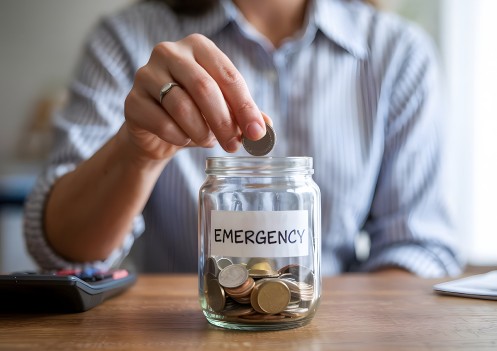Improve Your Financial Well-Being with an Emergency Fund
September 25, 2025
You know I am passionate about how important it is to build an emergency savings fund. It is not just a vital financial move; it is a quality-of-life move as well. When you know you have money set aside to help you when a big financial “what if” materializes, it helps you sleep better and worry less.
In fact, Vanguard recently reported that having an emergency fund was the biggest single factor in a large survey that measured participants’ financial well-being. Participants with at least $2,000 saved in an emergency fund reported a level of financial well-being that was 21% higher than participants with no emergency fund. Participants who had $2,000 plus another three to six months of living costs in an emergency fund had financial well-being ratings that were another 13% higher.
I am not surprised, but it is always great to see evidence of how emergency savings can help us lead less-stressed, more secure lives.
So let’s review my key steps for building an emergency fund.
- Commit to save a portion of every paycheck every month.
- Automate a direct deposit into a separate bank or credit union account that is only for your emergency savings. Do not keep emergency savings in your everyday checking account. This money needs its own special account—that’s how you will remind yourself it is special and only to be used in true emergencies.
- Aim to build up your account so it can cover at least eight months of living costs. A year’s worth is even better. Now listen to me: I am not suggesting this will be quickly achievable. It may take you some time to build up your emergency fund. That’s fine! The goal is to keep working toward your 8-12 month goal.
- Earn interest on your emergency savings. Some savings accounts offer annual interest of 3% or more these days, which is a lot better than the 0.03% you might be earning on a regular checking account. Or you might consider a certificate of deposit (CD) if you have a large emergency savings fund. As long as you have a few months of emergency savings you can tap immediately, having the rest in a longer-term CD that earns a higher interest rate can be a smart strategy.
If you haven’t already taken my advice to open an account at Alliant Credit Union and open an Ultimate Opportunity Savings Account, you really should get on it.






